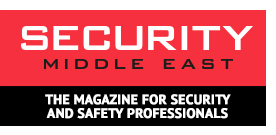
16 Apr Interview: A healthy security outlook
SME talks to Fahmi Jabri, general manager, Honeywell commercial security, Middle East, Turkey and Africa how they are putting health & safety at the heart of their security offering
How well has the security industry adapted to the changing health & safety situation?
The security industry remains focused on protecting people, data and property. Two distinct changes have taken place during the past year, though. First, there is now a greater need to create safer and healthier environments to reassure occupants as they return to work. Second, the increase in guidelines and social distancing measures means that there are new challenges for building operators to consider.
We recently commissioned a survey of Middle East workers, which was conducted by Wakefield Research, to find out what measures would make them feel safer in the workplace. Aside from wanting better cleaning procedures and investment in new building management technology, approximately one-third of the 500 respondents want to see their building operators invest in touchless door entry technologies and almost half said they would welcome health-screening technology.
The real need of the hour is to help create safer and healthier environments that redefine how an occupant experiences and perceives buildings. Building operators can adopt safety measures that will help increase occupant confidence to be safer in the knowledge that their wellbeing is priority.
What are the new solutions Honeywell is developing to address this change?
As the industry looks to return to the new normal, there is opportunity for change. We’ve quickly developed solutions that address the security needs of critical sectors. Working with our customers, we’re implementing solutions that support safer, more efficient and secure building operations, while boosting occupant confidence. For example, our Healthy Buildings solutions integrate air quality, health, safety and security controls, backed by expert services.
We’ve developed solutions that use artificial intelligence (AI) to help building owners comply with social distancing and mask guidelines and can also support contact tracing efforts. Importantly, they provide more than physical security by helping building owners to detect non-compliance with the regulations and safety guidelines. By applying a wide range of security solutions, building operators can navigate their way to more secure operations, more cost effectively.
Pro-Watch, for instance, is a fully integrated security suite that helps building operators reassure occupants, reduce operational costs and gain actionable safety and security insights on their building’s health – all from one user-friendly platform. The Safety Compliance Dashboard reports on data from video surveillance, analytics and access management systems that detect mask compliance, social distancing, elevated body temperature incidents, building occupancy density and Standard Operating Procedure (SOP) compliance.
What trends do you anticipate for the sector moving forward? How do you see the importance of video analytics and cameras going forward?
Digital transformation has increased given the current environment, and this rings true within the security sector. There is a bigger need for smarter, more remote, integrated, cybersecure and outcome-based solutions across industries.
In the near-future, we’ll see state-of-the-art solutions matching different segment needs and budgets, supporting various sectors to transform themselves and adapt to the major shift in the market.
With advancements in IoT, AI, Machine Learning (ML) and data analytics, building security operations can be optimized to focus not only on building health, but also on achieving efficiency goals. To improve operational effectiveness, building owners will need more powerful and actionable intelligence, where video analytics, both edge and server-based, play a key role.
Going forward, these elements will continue to be increasingly rolled-out into building designs to give building managers, owners, operators and occupants the ability to navigate living and working in an ever evolving world.
Workers want to see safety focused-investment
Middle East workers are seeking safety reassurances in the form of long-term, safety-focused investments in their workplaces by building operators, rather than only temporary changes in response to COVID-19, a survey commissioned by Honeywell and conducted by Wakefield Research has revealed.
The measures workers in the Middle East want to make them feel safer in the workplace, including enhanced cleaning procedures and new building management technology investment.
The survey of 500 workers across the Middle East is part of Honeywell’s global study of more than 2,000 employees located in the United States, United Kingdom, Germany and the Middle East.
Key findings from the region include:
Nearly 3 in 5 respondents (59%) believe that building operators are more likely to make short-term changes in response to COVID-19, rather than long-term investments in building systems that could help maximize safety in the future and provide greater return
Approximately one third (31%) want to see their building operators invest in updated air quality systems and touchless door entry technologies;
Almost half (46%) would welcome health screening technology, such as temperature checks, while 41% believe their workplaces should have enhanced cleaning procedures
18% would like to see new contact tracing technology installed in their place of work.
The full report is available at: https://hwll.co/ys6hr

